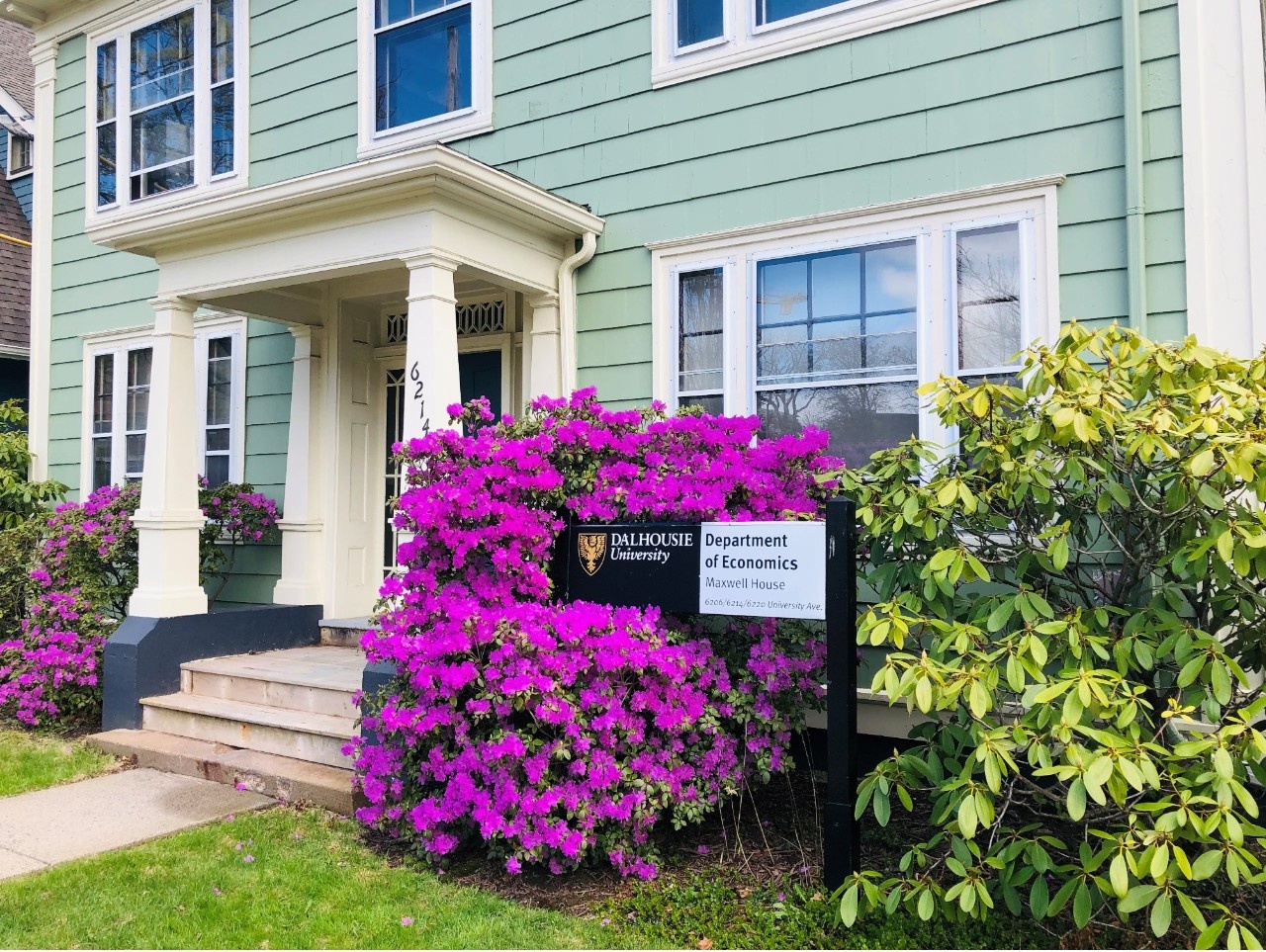Kiran Toor
BSc. Honours in Economics, 2017

Dal gave me the tools I needed to succeed in my graduate studies.
I graduated from Dalhousie University in 2017 with a BSc. Honours in Economics and minor in Statistics.
When I arrived at Dal in 2013, I intended to study biology or chemistry and follow a traditional path to medicine. I started my first year taking courses in Chemistry and Biology, but I soon realized that thermodynamics was definitely not for me. So I followed my grandfather's advice and took a course in Economics. Right away I was intrigued by the relevance of economics in everyday life and the application of mathematical models in solving real world problems. The more economics courses I took, the more I grew to love it. I realized that by pursuing economics I would learn how to help make important changes to benefit society.
Dal gave me the tools I needed to succeed in my graduate studies at Queen's University. The BSc program’s emphasis on learning econometrics and linear algebra, the extracurricular opportunities like participating in the Governor’s challenge, and even the push to learn how to use LateX gave me a strong foundation to build on during my MA at Queen’s University. A particular highlight was working with Dr. Teresa Cyrus and Dr. Christos Ntantamis on my Honours Thesis which investigated if GMO-induced debt increased farmer suicide rates in India.
In September 2018, I started my career as an Economist in the federal government at Statistics Canada. I worked on a variety of projects, which included analyzing the affordability of housing on reserves across Canada, analyzing agricultural food supply chains, studying the impact of COVID-19 on businesses owned by visible minorities, and researching financial indicators of investment readiness to inform on government programs. Working at StatCan gave me the opportunity to apply the skills I learned in school and grow as an Economist by working with rich and comprehensive datasets to conduct quantitative analysis.
Since 2022, I have been working at which is housed within the Privy Council Office. Impact Canada helps the government in implementing its vision, goals and decisions by using novel public policy methods (e.g. behavioural science interventions and outcome-based funding programs) to address identifiable gaps between policy intent and the policy delivery. My work is focused on measuring the impact of the , which deploys government grants and funding through stage-gated competitions and rewards the achievement of an outcome rather than paying on expenditures or activities. Prize-challenges create an incentive to invest in areas where no natural incentive for innovation yet exists – a market failure. Prize-challenge work spans diverse domains from developing novel food production systems for long-duration space missions to supporting the transition to clean-energy by advancing battery technology to advance the energy markets powered by renewable energy.
One of the great things about studying economics and being an Economist is that you have the tools to work in multiple areas. My work history shows how I have been able to embrace my curiosity and apply economic analysis to solve problems in all sorts of areas - from housing to agriculture to clean technology and beyond. But no matter what I am working on, I use the analytical and strategic thinking skills that I first learned at Dal every single day.
Working for the government in a variety of subject areas has allowed me to learn new skills and discover where my interests and my natural competencies converge. The result? A fulfilling career. Since working in the Government, I have learned that I am a generalist who can work with multiple actors in a given environment to move an initiative forward, and who can work within the machinery of government to make an impact. In short, co-creation and collaboration between the public and private sector, civil society organizations, academia, and Canadian citizens is necessary to efficiently tackle the challenges of tomorrow. We need to rely and lean on each other to make progress!
When reflecting back on the my time at Dal, I feel extremely grateful to Dr. Teresa Cyrus for being a female role model in the field of Economics (if I had not taken her first-year micro course, then I would not be where I am now!), and Dr. Christos Ntantamis for his consistent support, and many other faculty members who expanded my interests from understanding the role of monetary policy in the Canadian economy, to taking courses on the economics of climate change, and the economics of retirement and more!
